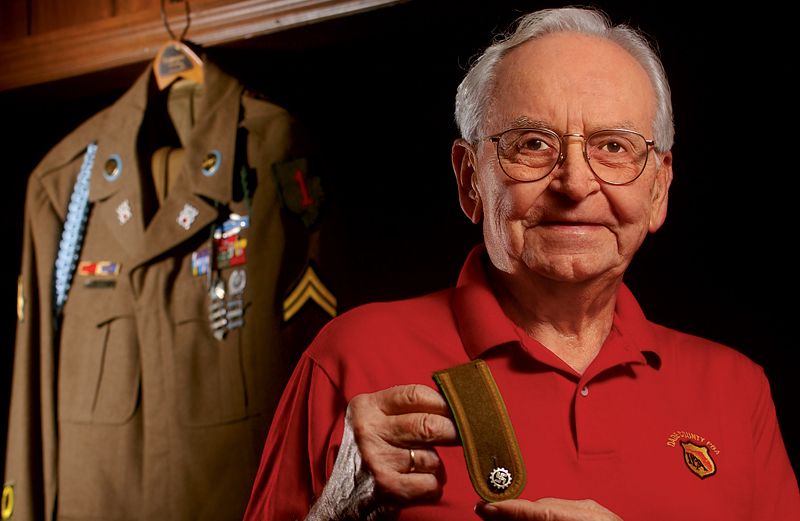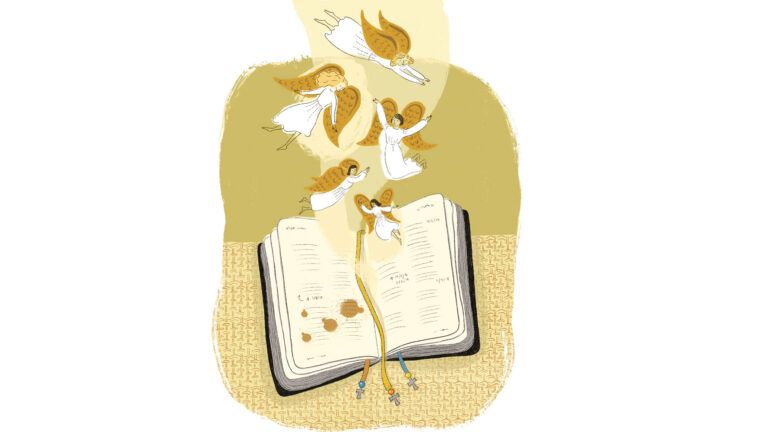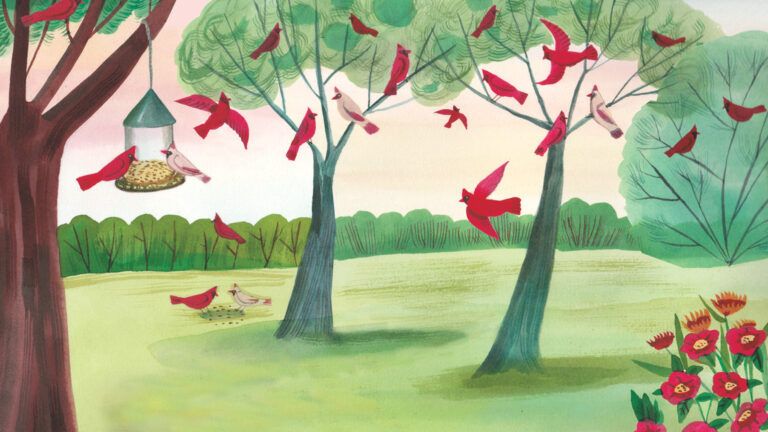I was a 21-year-old corporal in the U.S. Army, on patrol in the remote Kasserine Pass in the mountains of Tunisia.
Earlier that night, February 20, 1943, a full North African moon had lighted up the arid landscape, but now heavy clouds created a wall of darkness. I strained to see what might be in front of me.
With my rifle cradled and ready, I stepped forward a few paces, then waited, trying to listen. Any mistake could bring sudden death. The darkness that covered me could also hide German soldiers.
That day the First Division of the U.S. Fifth Army, known as the Big Red One, had been attacked by the full force of Field Marshal Rommel’s famed Afrika Korps. “Hundreds are dead,” we were told. Hundreds more had been taken prisoner.
But no one knew what Rommel’s—the “Desert Fox”—next move would be. The men in Company B frantically dug foxholes and set up defenses. Our commander called four of us to his tent.
“Find the Germans,” he said. “Learn their plans.” We saluted and went out into the night, out into the no-man’s-land between us and the enemy.
After a while I became separated from the others in the darkness. I was on my own for an hour or more. In my slow pursuit I’d encountered only scrub brush, rocks and sand. Then I realized the clouds were parting again. The brilliant light of the full moon swept over the ground.
My stomach knotted. I froze in place. I was a sitting duck, a perfect target for the enemy. I carefully scanned the landscape in front of me.
There! A figure in the moonlight. Only yards in front of me. The light glinted off the swastikas on his shoulder patches. A German soldier!
He raised his arms, aiming his machine pistol directly at me. I jerked my rifle around and fired at him. The sound of bullets cracked back and forth through the air. A blow to my hip knocked me to the ground. My rifle went flying. I couldn’t move my legs.
Dear God, is this where I’ll die? I looked up. The German slowly approached, his pistol aimed at me. I waited for death. The soldier stared at me and lowered his gun.
“Corporal,” he said, speaking to me in perfect English, “how badly are you hurt?”
“I’m not sure. I feel numb from my waist down.”
He looked at me silently. I could see the soldier clearly in the bright moonlight. We seemed to be about the same age. He was more than six feet tall and strongly built. The border on his shoulder patches meant he was a corporal, just like me.
“I know where a British aid station is,” he said. “I’ll take you there.”
I must be dreaming. The soldier holstered his pistol and reached down to grab my arms. He raised me to my feet. “Can you walk?” he asked. I shook my head. The feeling hadn’t returned to my legs. He took hold of my right arm, and slipped his other arm under my right leg.
“Up you go,” he said. He swept me onto his shoulders, and secured me in a fireman’s carry. Then he started walking.
The walk was a blur as I drifted in and out of consciousness. How far we went, I will never know. But the soldier breathed heavily under my weight, growing tired. Several times he stopped to rest, lowering me to the ground. Then he hoisted me up on his shoulder and we set out again.
The soldier talked as we stumbled on. “I am Alois Wagner,” he said. “My home is in Germany.” I told him my name. “What do you do in America?” he asked. “I like to fish,” I said, “and hunt.” “For me, the same,” he said. How could this man be my enemy? I wondered. He was more like a brother.
Clouds covered the moon again, bringing more darkness. The German corporal slowed, moving cautiously, searching for the best way forward. I became aware of lights and the shadowy shape of tents.
“Halt!” A command was shouted out in the night. Corporal Wagner shouted back: “I am a German soldier. I have an American here who needs help.” I heard British voices. Dim figures emerged from the darkness and surrounded us.
Corporal Wagner carefully lowered me to the ground and then stood tall beside me. He stunned me with his words: “I surrender!”
We were put on cots side by side in a medical tent, and our wounds were treated. My shot had grazed his ribs. I’d be taken to a hospital to have bullets removed from my hip. We’d both be all right.
“Gott ist mit uns,” Corporal Wagner said. “God is with us.” I looked at my rescuer. “Not all Germans agree with Hitler,” he said quietly.
Before he was taken away, he tore off a shoulder patch from his uniform, and handed it to me. “A memento of our meeting in Kasserine Pass,” he said.
Eventually I tried to trace Alois Wagner through the POW camps. I learned he was first sent to England and then to Canada. But there the trail reached a dead end. I believe he survived the war, and I hope he’s had a good life. Gott ist mit uns, as he said.
I still have his shoulder patch. The swastika was originally an ancient image of the cross before Hitler and the Nazis corrupted it and turned it into a symbol of pure evil. Yet Christ said, “Love your enemy.” For some reason, Alois Wagner did.
Download your FREE ebook, Angel Sightings: 7 Inspirational Stories About Heavenly Angels and Everyday Angels on Earth






